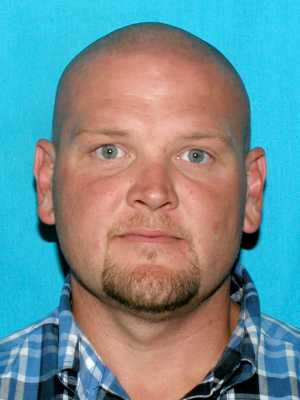Sentence of Community Supervision for LifePeople convicted after July 1, 1996 of actual or attempted aggravated rape, rape, aggravated sexual battery, or rape of a child, and people convicted after July 1, 2010, of actual or attempted aggravated rape of a child "shall" be sentenced to community supervision for life. Such persons will be supervised by the board of probation and parole "to establish such conditions of community supervision as are necessary to protect the public from the person's committing a new sex offense, as well as promoting the rehabilitation of the person."Source: TCA § 39-13-524
VIDEO
This story is featured in a TimesFreePress newscast.
A Hamilton County man who assaulted a teenage girl and killed his pregnant wife May 19 was supposed to be on community supervision for life as a multiple, violent rapist.
However, 34-year-old Terry Releford was not monitored by the state Department of Correction after his nearly 15-year prison sentence ended.
Department spokeswoman Dorinda Carter acknowledged he should have been, but blamed the now-retired district attorney in Bradley County, where Releford was convicted.
In a written statement, she said TDOC requires a court order through the DA's office to place anyone on lifetime supervision.
"Our office sent letters to the 10th Judicial District Attorney's office regarding Releford on 1-7-2004 and again on 9-23-2005 asking for an amended orders. The court did not provide amended orders," Carter said.
Releford was sentenced in 1998 for three counts of aggravated rape, one count of conspiracy to commit first-degree murder, one count of aggravated assault and one count of aggravated kidnapping. He served 85 percent of his 17-year sentence and was released when his sentence expired.
So when Releford walked free on May 21, 2012, no one was tasked with supervising his behavior.
Records show he never completed mandatory sex offender training in prison. And though records show he spent much of his teens in and out of mental institutions, he wasn't given a mental evaluation when his prison release was near, even though one was recommended.
Instead, he walked out with a promise to prison officials that he would get sex offender treatment on the outside.
Without that court order, it wasn't anyone's job to make sure he actually followed up.
As a registered violent sex offender, he was required to report to his county sheriff's office four times a year to give information such as his address, vehicle information or employment information. However, those check-ins did nothing to monitor whether he fulfilled mental-health treatment requirements.
For lack of a check mark
Paperwork in Releford's case indicates that the lack of community supervision was a result of a failure by the judges and district attorney's office in Bradley County.
District attorneys fill out judgment forms when a defendant's plea is made; judges advise defendants what their sentence entails, including whether a person should be on the sex offender registry or needs mental health evaluations. In Releford's case, no one marked the judgment form to place him on the sex offender registry or assign him to community supervision for life.
When the Correction Department finds a discrepancy, it asks for a corrected judgment.
"What will happen is TDOC will ... send us a letter that this is a crime that is supposed to be on community supervision for life. 'The box is not checked. Please submit a corrected judgment,'" said 10th Judicial Assistant District Attorney Stephen Hatchett. "And we would. We've submitted corrective judgments."
In one of Releford's rape cases, his co-defendant, Kyle McDonald, was later placed on community supervision for life as a result of one of those letters.
The 10th Judicial District Attorney's Office had no record of receiving the letters about Releford from the Department of Correction in files reviewed last week.
Jerry Estes, who was district attorney general at the time and now has a private law practice in Athens, Tenn., did not return a phone message seeking comment.
Criminal Court Judge Carroll Ross, who sentenced Releford, also did not return a phone message seeking comment.
"I think today if a judge doesn't make sure it says community supervision for life, it's not just the judge's fault, it's our fault because ... we fill out the judgments," said 10th Judicial District Attorney General Steve Bebb, who took office in 2006 after serving as a Criminal Court judge.
He was the judge in one of McDonald's cases where the community supervision for life requirement was left off the judgment and only corrected after TDOC contacted prosecutors.
"I probably didn't explain it [to McDonald] if I was the judge," Bebb said.
"Nobody did. No judges did. It was very rare for judges to," Hatchett said.
In 2010, the Tennessee Supreme Court ruled judges must tell defendants when they will be placed on lifetime supervision.
"Because the mandatory lifetime supervision requirement is an additional part of a defendant's sentence, the trial court is constitutionally required to inform the defendant of the supervision requirement as part of the plea," the opinion states.
Since the ruling, prosecutors must be thorough the first time they fill out judgment forms for lifetime supervision because they can't come back and amend them later.
Hatchett said several cases have been overturned because of the ruling. In one case, prosecutors had to settle a sexual assault case involving a child for a lesser charge, he said.
In Hamilton County, checking the box for community supervision for violent sex offenders is standard practice, Attorney General Bill Cox said.
"It's not really optional. It's not something you can negotiate," he said.
"If the law says you go on the registry because you commit this type of crime, it ought to be automatic," Cox said. "It shouldn't rely on some checkbox on a piece of paper."
Contact staff writer Beth Burger at bburger@timesfreepress.com or 423-757-6406. Follow her on Twitter at twitter.com/abburger.

